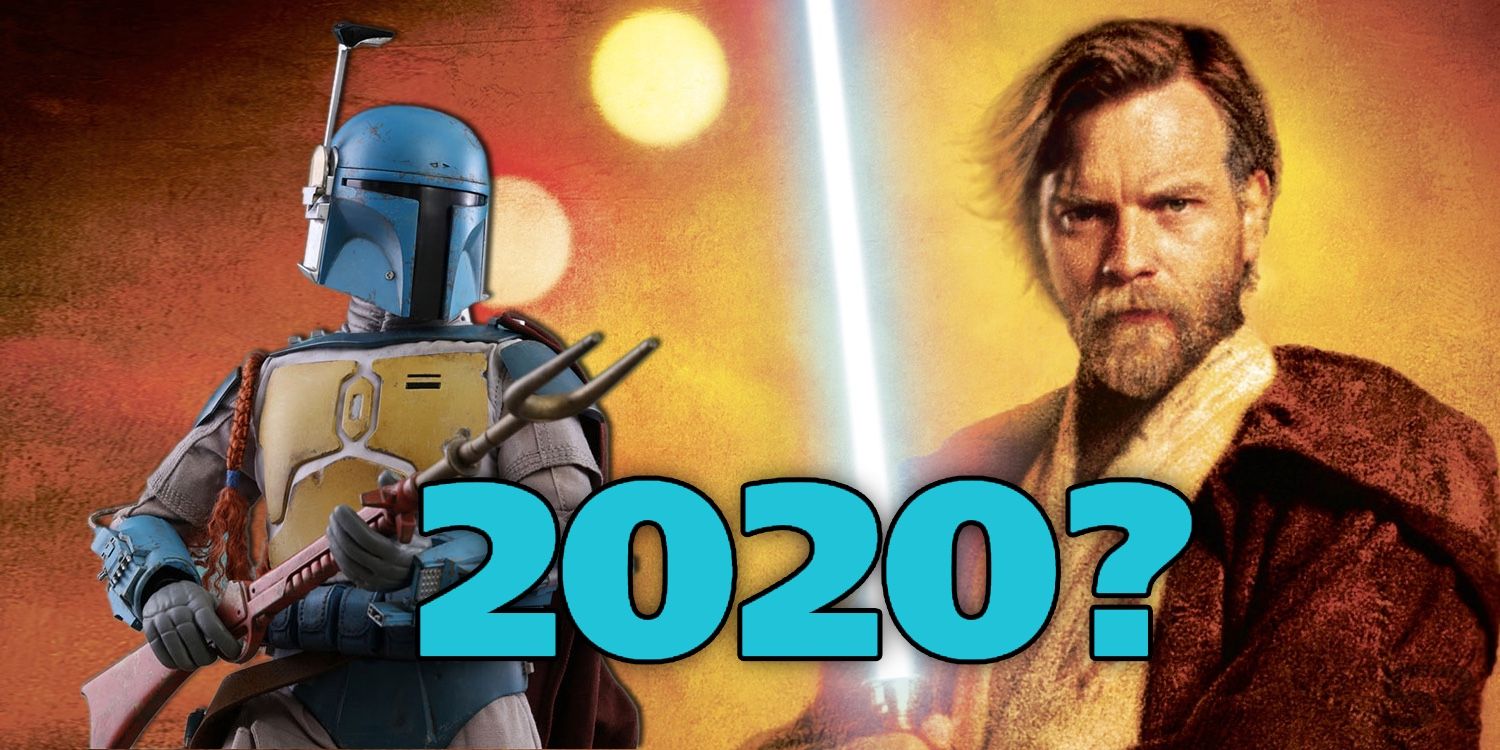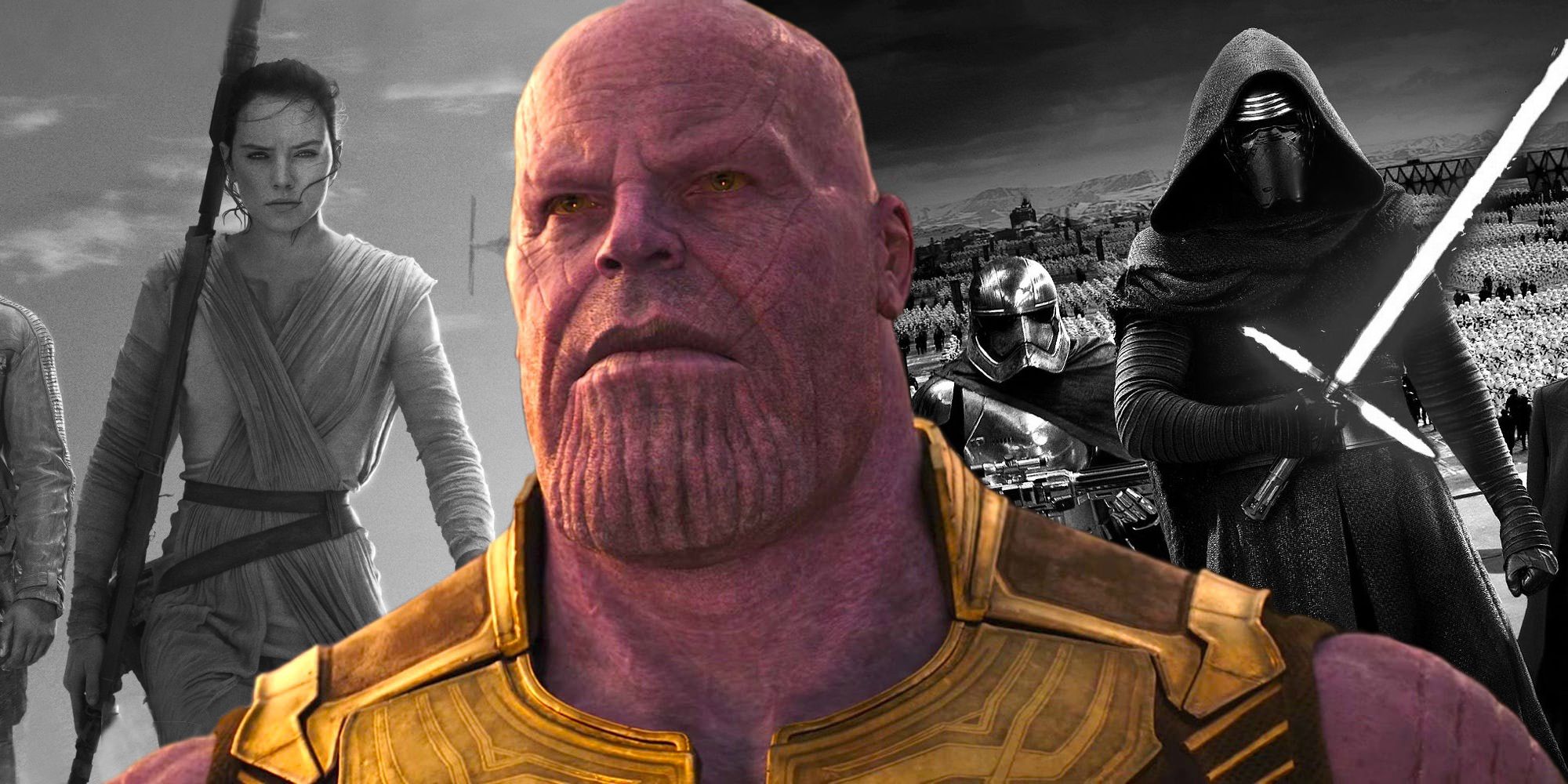The latest Star Wars film, the Ron Howard-directed Solo: A Star Wars Story, opened to a surprisingly tepid box office response, at least by blockbuster standards, suggesting it might be a mistake for Star Wars to release more than one film a year. There are a number of factors which may be to blame for the film's soft launch, from the recasting of one of the most iconic characters ever put on the silver screen, to the highly publicized behind-the-scenes drama involving the firing of the film's original directors, to Solo's comparatively free-wheeling, low-stakes action when compared to the immediate doomsday threats of Rogue One's Death Star or Starkiller Base from The Force Awakens.
One of the most often-cited issues with the film was its release date, on Memorial Day weekend. Solo is the fourth Star Wars film since the franchise – and the rest of Lucasfilm – was acquired by Disney, but it's the first entry not to release in the month of December. The film's proximity to the somewhat divisive The Last Jedi surely didn't help matters, especially considering how Rian Johnson's game-changing blockbuster continues to dominate any Star Wars conversation, even five months on from release.
Related: Solo: A Star Wars Story's Biggest Problem Was Its Confused Marketing
Why did Disney opt to release Solo in May, hot on the heels of Avengers: Infinity War and Deadpool 2, and not wait until December? The Christmas holiday season is proven territory for the franchise in its modern incarnation, although it's worth noting, back in the old days, the original six movies each made their debuts in May.
It's likely that Disney was testing the waters of releasing more than one Star Wars film per year, following in the footsteps of their other huge live-action franchise, the Marvel Cinematic Universe. Unfortunately, Solo's soft box office debut can be seen as evidence which suggests Star Wars Trying To Move To Two Movies A Year Is A Mistake.
- This Page: The Star Wars Approach Vs The Marvel Approach
- Page 2: Why the Marvel Approach Doesn't Work With Star Wars
The Star Wars Approach Vs The Marvel Approach
Disney released Solo in the Summer, just five months out from The Last Jedi, in an effort to prove that they could replicate their success with Marvel Studios, which is currently releasing no less than three movies per year. Although Lucasfilm is holding their cards close, the plan for the current trilogy (Episodes VII-IX) is to release movies semi-annually, alternating between mainline "saga" films and stand-alone spinoffs.
Thus far, this approach has been successful, to say the least. The first three films in the revived series each grossed over a billion dollars at the global box office, with The Force Awakens even managing to crack the vaunted two billion dollar mark. However, it's unclear what the future of the mainline Star Wars saga holds after Episode IX. Will there be an Episode X? What about Rian Johnson's upcoming trilogy, as well as the series of films from the creators of Game of Thrones? Will they take the place of "saga" films, or anthology side stories? Or does Disney have something else in mind?
Related: Solo Almost Released Straight After Force Awakens - Changing It Was A Mistake
Disney's decision to release Solo in May was a method of testing the viability of releasing Star Wars movies all year round, a method which has worked wonders with their Marvel movies. The first MCU movie to release outside of the Summer months was Thor: The Dark World, which made its debut in November of 2013, five years after Iron Man, the first entry in Marvel's stable of blockbusters. The next MCU film, Captain America: The Winter Soldier, opened on April 4, 2014, getting a one-month head start on the traditional Summer movie season, and the first Guardians of the Galaxy was considered unorthodox with its August 1 release date. Since then, the MCU has included more November releases (Thor: Ragnarok and Doctor Strange), and its current domestic champion, Black Panther, opened in February, a month which is often considered a dumping ground for doomed movies.
If this year-round approach works with Marvel, then it should work with Star Wars, right?
Page 2: Why the Marvel Approach Doesn't Work With Star Wars
Why the Marvel Approach Doesn't Work With Star Wars
Not all blockbusters are the same. Star Wars and Marvel are fundamentally different. While both stories are set in wide open universes with endless storytelling possibilities, the disparate movies are connected in different ways.
For Marvel, each movie is aided by the fact that they are always building towards the next big event. Black Panther, Thor: Ragnarok, and Spider-Man: Homecoming couldn't be more different, but they each lead to Avengers: Infinity War. There are many roads in Marvel's cinematic universe, but they all lead to Thanos.
On the other hand, Star Wars doesn't have that same natural synergy. Rogue One forced its way into the greater universe thanks to its overt connections to the events of A New Hope, but the presence of Han's lucky dice in Solo doesn't have the same profound impact as the ways Rogue One seamlessly connects to the 1977 original. Furthermore, it's highly unlikely that Episode IX will be directly impacted by anything from Solo (or Rogue One, for that matter), barring Easter eggs or fanservice cameos.
Related: Disney Has 24 Movies Releasing 2020-2022 - So Where's Star Wars?
There are arguably even more roads in Star Wars than there are in Marvel, but they don't all intersect, at least not in any kind of grand culmination. It's good that Rian Johnson's trilogy and the David Benioff and D.B. Weiss movies won't be anchored to known galactic events, but that lack of Marvel-style synergy, driving at a major team up, means that trying to release multiple Star Wars movies every year, jumping back and forth in the timeline, is a tricky proposition at best.
Don't Get Greedy, Disney!
There are many Star Wars stories to tell. James Mangold is reportedly attached to write and direct a Boba Fett film, and Ewan McGregor is chomping at the bit to reprise his iconic role as Obi-Wan Kenobi. Add in Rian Johnson's trilogy and Benioff/Weiss films (which may be larger in scope than a traditional trilogy), and that's already at least eight movies. It's easy to see Disney and Lucasfilm wanting to move forward with even more films as quickly as possible, like a Lando Calrissian spin-off starring Donald Glover, but increasing production to match the frequency of Marvel's films is a dangerous proposition, and not just because there aren't enough talented special effects houses to handle that amount of work; the key to longevity in Hollywood lies with quality, not quantity.
For the time being, Disney should stick to their current schedule of one Star Wars movie per year. It's served them well thus far, and Star Wars, while possessing an endless potential for storytelling possibilities, isn't primed to expand as fast as Marvel's movies. The time will surely come when the fandom will be accepting of multiple movies per year, but that time has not yet arrived. In testing the waters by forcing Solo out in May when they should have waited until December, they only succeeded in hurting the film's box office potential. Ironically, the 18-month gap between Solo and 2019's Episode IX is already being considered a point in the latter film's favor.
This isn't the first time Disney wanted to move Star Wars out of December and into the Summer months. When The Last Jedi was first announced, it was given a May 2017 release date, though it was eventually delayed to December. Likewise, the upcoming Episode IX was similarly slated for May 2019, though it was also pushed, following the exit of director Colin Trevorrow, who was replaced by JJ Abrams, who first revived the franchise with The Force Awakens.
All of this is not to say that Star Wars should stay sequestered in December forever, but it's important not to expand too quickly, lest the brand get cheapened in the process. For lack of a better word, Star Wars is special. There's something about the universe George Lucas created over 40 years ago that speaks to audiences like nothing else in fiction. Lucasfilm needs to be careful, the way Marvel Studios was when they first began to expand the influence of their movies, or else Star Wars will become just another film franchise subject to audience apathy and the law of diminishing returns.





